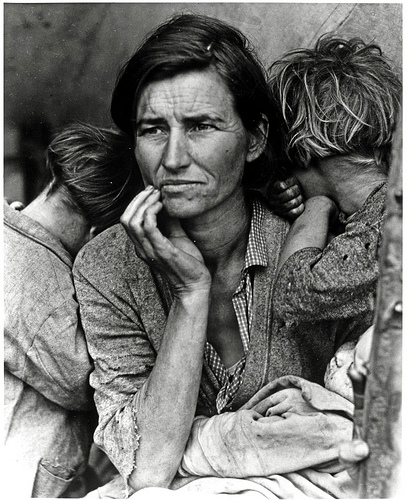While news of a cautious economic recovery continue to make headlines, so does the narrative that began with Occupy Wall Street. Low-income workers are still suffering and recent strikes by fast food workers -- an act of last resort as a worker -- show just how painful it is to be on the bottom rung of the economy.
The current minimum wage ($7.25/hour at the federal level, higher in some cities and states), while not always explicit in these stories, is at the heart of the economic turmoil driving this narrative. Having a minimum wage that works is important to me. My nonprofit, EARN, is in the business of sparking habits of saving and investing among low-income workers, and we strive to shape the economy so that it rewards hard work.
This notion that opportunity should follow hard work is at the heart of the American economic ethos. While I believe in the power of markets, I also believe that the current minimum wage fails to meet a basic standard of reasonableness, and violates American values.
This is especially true when we view the issue through the "effort should yield opportunity" lens. Failing to raise the minimum wage is a failure to uphold the most important normative principle of the American economy. We are unable to uphold the promise that if you work incredibly hard and strive and invest, you can experience mobility for yourself, and position your children to continue ascending. Our social contract is breaking.
I fully acknowledge the strong counter-points to my opinion. I am genuinely sympathetic to many of them. When I set out to research and write something about how the U.S. should handle the issue of the minimum wage, I sought a wide range of opinions, and I listened. I started by talking to friends who were entrepreneurs here in California. These are some of the most liberal folks I know, but they looked stricken when I suggested California ought to raise its minimum wage. This is a very expensive state to do business in. A raise in the minimum wage ($8/hour in California) on the heels of increased health care costs might hurt. They liked the idea in theory, but feared what it could mean financially.
I also corresponded with some very thoughtful people at the Heritage Foundation. They generally believe it is better to subsidize low-wage workers directly through well designed government programs or work-based programs. They take this view because they believe that a minimum wage that's too high would reduce job opportunities for poorly skilled workers already struggling in the labor force.
In addition to the Heritage Foundation, I was in touch with Dean Baker, economist and co-founder of the Center for Economic and Policy Research. Dean emphasized in a simple, but powerful way, how impossible it is to get by on minimum wage.
Reasonable, smart people can debate this forever, endlessly using data and statistics to make a case to support what they believe. But I would like us to consider the issue of the minimum wage using higher-level questions that reflect core American values.

In considering the minimum wage using this frame, here are four points that stand out to me:
1. The current minimum wage fails to meet a basic standard of reasonableness
A single mother with two kids who works 50 hours per week, for 52 weeks a year, makes $18,850 per year. This is below the poverty line. Dwell on this for a moment. This woman works 50 hours a week, every week of the year -- and remains below the federal poverty line, which is $19,530 for a household of three. To me, these numbers say we simply don't value effort. We cannot declare our society a meritocracy with a minimum wage that leaves strivers in this position.
2. We're diluting our secret sauce
The secret sauce of the American economy is the optimism and confidence that result when opportunity follows effort. As one of America's core economic ideas fades, it will be devastating for our economy and our society. People will lose initiative, optimism and will stop believing in their futures.
3. Our lack of economic mobility signals our failure -- and a grim future
According to some surveys, the majority of Americans still believe they'll be rich one day (as a frightening aside, many believe this will happen by winning the lottery -- but that's a topic for another post). These beliefs persist despite the hard fact it is much harder than many of us think for Americans to move up within the economy. The Pew Charitable Trusts has done incredibly good research on this issue, and I encourage you to read it. In fact, when we compare the U.S. to other OECD countries, we fare badly in important measures like income equality, child poverty and literacy inequality.
4. We may have to pay more
I understand that in some cases, a rise in the minimum wage might lead to costs increasing for consumers if business owners maintain their margins. I'm willing to pay more to uphold our values and think many others are as well. The film Behind the Kitchen Door explores this very evocatively. Here's a trailer for the film:
I still believe in this country, but we're in need of some deep, challenging introspection to solve our opportunity problem. While many Americans continue to strive and succeed, many more strive but remain stuck in place. Over time, fewer and fewer will believe they can get ahead. Confidence, optimism and initiative will fade, with our economy and society fading as well. The American Dream simply doesn't exist unless there's an authentic way for all Americans to get ahead.
Ben is President, CEO and Cofounder of EARN, a lecturer at UC Berkeley's Haas School of Business Follow Ben at LinkedIn and Twitter for provocative, truth telling about leadership, social enterprise, the social sector and doing good in the world.
Photo: Dorothea Lange, Migrant Mother, courtesy of flicker.com/creativecommons